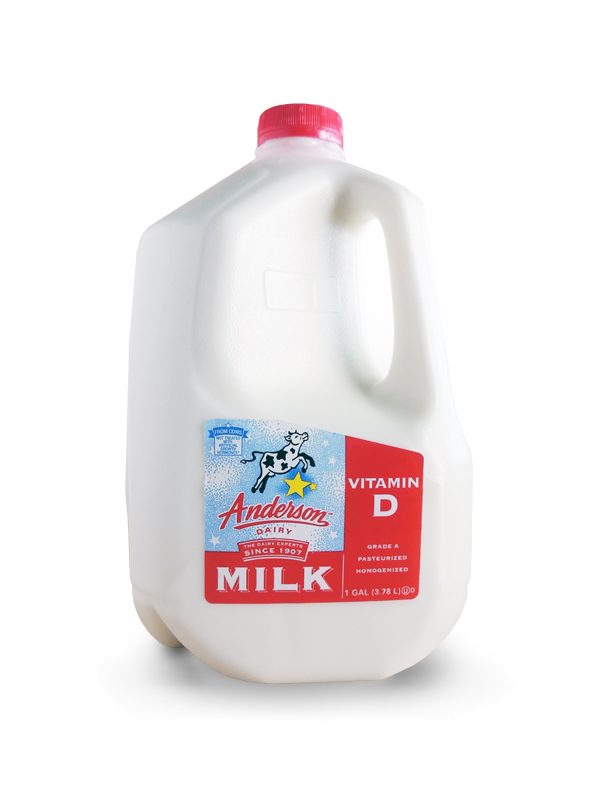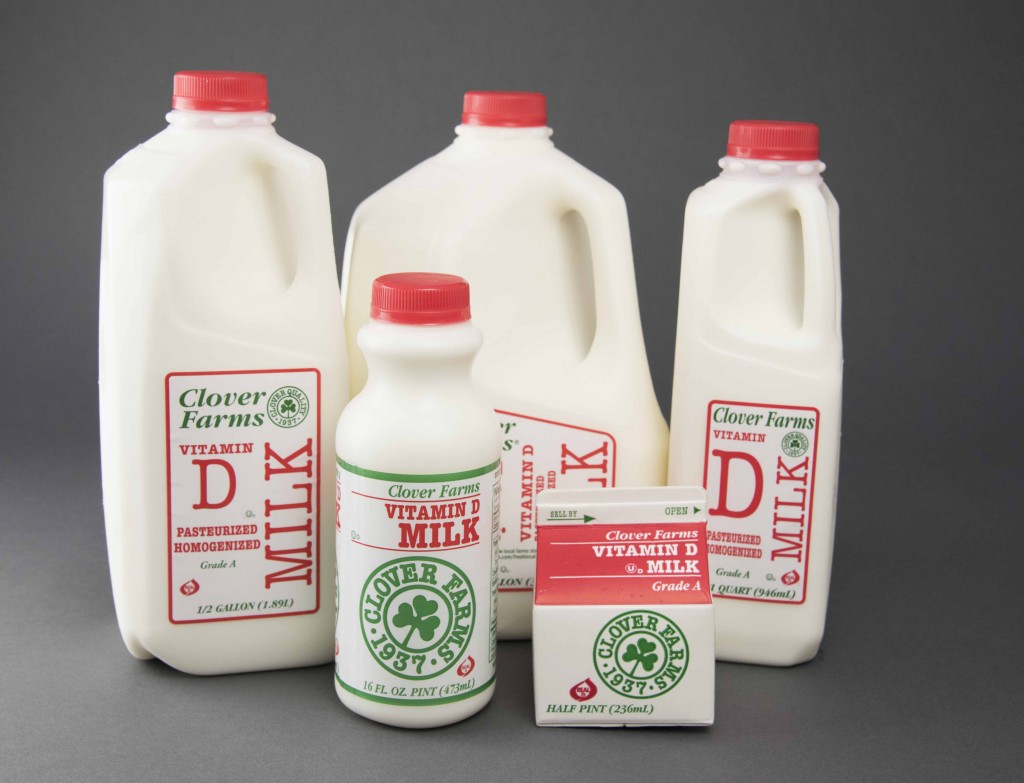Vitamin D is a type of vitamin that is essential for the body to absorb calcium and promote bone growth. Vitamin D can be found in many foods, including milk. Milk is an excellent source of vitamin D because it is fortified with this nutrient. A glass of milk contains about 100 IU of vitamin D, which is about 25% of the Daily Value (DV) for this nutrient. There are many benefits to drinking vitamin D milk. The benefits of Vitamin D milk is essential for strong bones and teeth, and it can also help improve your immune system. Drinking vitamin D milk can also help you maintain a healthy weight.

Credit: andersondairy.com
Is Milk High in Vitamin D?
Yes, milk is a good source of vitamin D. One cup of milk contains about 100 IU (international units) of vitamin D. Vitamin D helps the body absorb calcium and phosphorus from food and supplements. It also helps to keep bones strong and healthy.
Is Drinking Vitamin D Milk Good for You?
Yes, drinking vitamin D milk is a benefits for you. Vitamin D is essential for strong bones and teeth, and it helps your body absorb calcium. It’s also thought to boost your immune system and protect against some chronic diseases, such as type 2 diabetes and heart disease.
In addition, vitamin D may help improve your mood and reduce stress levels.
What Vitamin D is in Milk?
Vitamin D is a fat-soluble vitamin that is naturally present in very few foods, added to others, and available as a dietary supplement. It is also produced endogenously when ultraviolet rays from sunlight strike the skin and trigger vitamin D synthesis. Vitamin D promotes calcium absorption in the gut and maintains adequate serum calcium and phosphate concentrations to enable normal mineralization of bone and to prevent hypocalcemia tetany.
It also plays an important role in cell proliferation, nerve conduction, muscle contraction, and inflammation reduction. While our bodies can make vitamin D from exposure to sunlight, milk is one of the few dietary sources of this nutrient. Just one cup of milk contains about a quarter of the daily recommended intake for adults (500 IU).
Vitamin D content in milk varies depending on whether it’s whole or skimmed, but it’s generally between 115-124 IU per cup.
Whole milk may have surprising benefits, study says
Vitamin D Milk Vs Whole Milk
When it comes to milk, there are two main types of vitamin D – whole milk and vitamin D milk. Both are excellent sources of this essential nutrient, but there are some key differences between the two. Here’s a closer look at the benefits of each type of milk:
Whole Milk: Whole milk is an excellent source of calcium, phosphorus, and vitamins A, B12, and D. It also contains fatty acids that can help to improve heart health. One cup of whole milk contains around 8 grams of fat, which is why it’s often recommended for people who are trying to lose weight or maintain a healthy weight. Vitamin D Milk: Vitamin D milk is fortified with this important nutrient, making it an ideal choice for people who don’t get enough sun exposure or who have trouble absorbing vitamin D from food.
One cup of vitamin D milk contains 100% of the Daily Value of this nutrient, so it’s a great way to make sure you’re getting enough. It is also important for bone health and can also help to reduce the risk of certain diseases like cancer and diabetes.
Vitamin D in Milk Vs Sunlight
Vitamin D is an important vitamin that helps our bodies absorb calcium and phosphorus. It’s often called the “sunshine vitamin” because our bodies can produce it when we’re exposed to sunlight. Vitamin D is found in a few foods, including fatty fish like tuna and salmon, as well as in fortified milk and cereals.
But getting enough vitamin D from food alone can be difficult, which is why many people rely on supplements to get their daily dose. Some research suggests that vitamin D supplements may offer health benefits, such as reducing the risk of certain types of cancer and improving bone health. However, more research is needed before any definitive conclusions can be made.
So how much vitamin D do you need? The amount of vitamin D you need depends on your age, but the Institute of Medicine (IOM) recommends a daily intake of 600 IU (international units) for adults up to age 70. For people over 70 years old, the IOM recommends 800 IU per day.
Exposing your skin to sunlight is the best way to produce vitamin D naturally. But how much sun exposure do you need?
Where Does the Vitamin D in Milk Come from
Vitamin D is a nutrient that helps the body absorb calcium and phosphorus. It is found in food sources such as eggs, fish, and fortified milk. Vitamin D can also be made by the body when the skin is exposed to sunlight.
Most people meet their vitamin D needs through exposure to sunlight and dietary sources, such as fortified milk. However, some people may not get enough vitamin D from these sources and may need to take a supplement. Vitamin D deficiency can lead to bone problems such as rickets in children and osteomalacia in adults.
A lack of vitamin D can also cause muscle weakness and increases the risk of falls and fractures.
Vitamin D Milk Benefits
Vitamin D is essential for strong bones, and milk is one of the best sources of this nutrient. Just one cup of vitamin D-fortified milk can provide up to a third of the daily recommended intake for adults. Vitamin D helps our bodies absorb calcium, and research suggests that it may also have other health benefits, including reducing the risk of certain cancers and improving immunity.
Although we can get some vitamin D from exposure to sunlight, many people don’t get enough of this important nutrient from diet alone. That’s why milk is often fortified with vitamin D. If you’re not a fan of cow’s milk, there are plenty of other options available, including soy milk and almond milk, that are also fortified with vitamin D. So if you’re looking to boost your intake of this important nutrient, reach for a glass of fortified milk next time you’re at the grocery store.
Vitamin D Milk Calories
Vitamin D milk is a type of fortified milk that has been enriched with vitamin D. This makes it an excellent source of this essential nutrient, which is important for bone health and immunity. A single cup of vitamin D milk contains approximately 120 calories, so it can be a nutritious and calorie-dense addition to your diet. If you’re looking to increase your intake of vitamin D, then consider adding this delicious beverage to your breakfast or snack time routine.
Vitamin D Milk for Babies
Vitamin D milk is a great way to get your baby the nutrients they need. It helps the body absorb calcium and phosphorus, which are important for strong bones and teeth. It also helps boost the immune system.
Most babies do not get enough vitamin D from sunlight exposure, so it’s important to supplement with foods or liquids that contain it. Many parents worry about giving their baby cow’s milk because of the potential for allergies. However, most babies with cow’s milk allergies can drink vitamin D-fortified milk without any problems.
If you think your baby may be allergic to cow’s milk, talk to your doctor before giving them any dairy products. Vitamin D milk is available in most grocery stores and many brands offer it in both whole and skim varieties. You can also find it in some organic stores.
When choosing a brand, look for one that is fortified with at least 400 IU of vitamin D per serving.
Vitamin D Milk Vs 2 Percent
There are many different types of milk on the market these days. Whole milk, 2 percent, 1 percent, skim milk, and even almond milk. So which one is best for you?
If you’re looking for the most vitamin D. Then you want to choose milk that has been fortified with this essential nutrient. Vitamin D is important for bone health and can also help boost your immune system. So if you’re looking for a nutritional powerhouse, then vitamin D milk is the way to go.
Vitamin D Milk for Toddlers
Vitamin D milk is often recommended for toddlers. As their bodies are still developing and they need all the nutrients they can get. Vitamin D helps the body absorb calcium, which is essential for strong bones and teeth. It also helps boost the immune system and has been linked to a reduced risk of some cancers.
There are a few different options when it comes to vitamin D milk for toddlers. You can find brands that sell milk fortified with vitamin D, or you can give your toddler a daily supplement of vitamin D. If you choose to give your toddler a supplement, be sure to talk to your pediatrician first, as too much vitamin D can be harmful.
Conclusion
Did you know that milk is one of the best sources of Vitamin D? Vitamin D is essential for our bodies to absorb calcium and phosphorus, which are two minerals essential for bone health. It’s also important for our immune system and helps keep our cells healthy.
So how much Vitamin D do you need? The daily amount is 600 IU (international units) for adults, and 800 IU for adults over the age of 70. You can get your daily dose of Vitamin D by drinking just one cup of milk!

